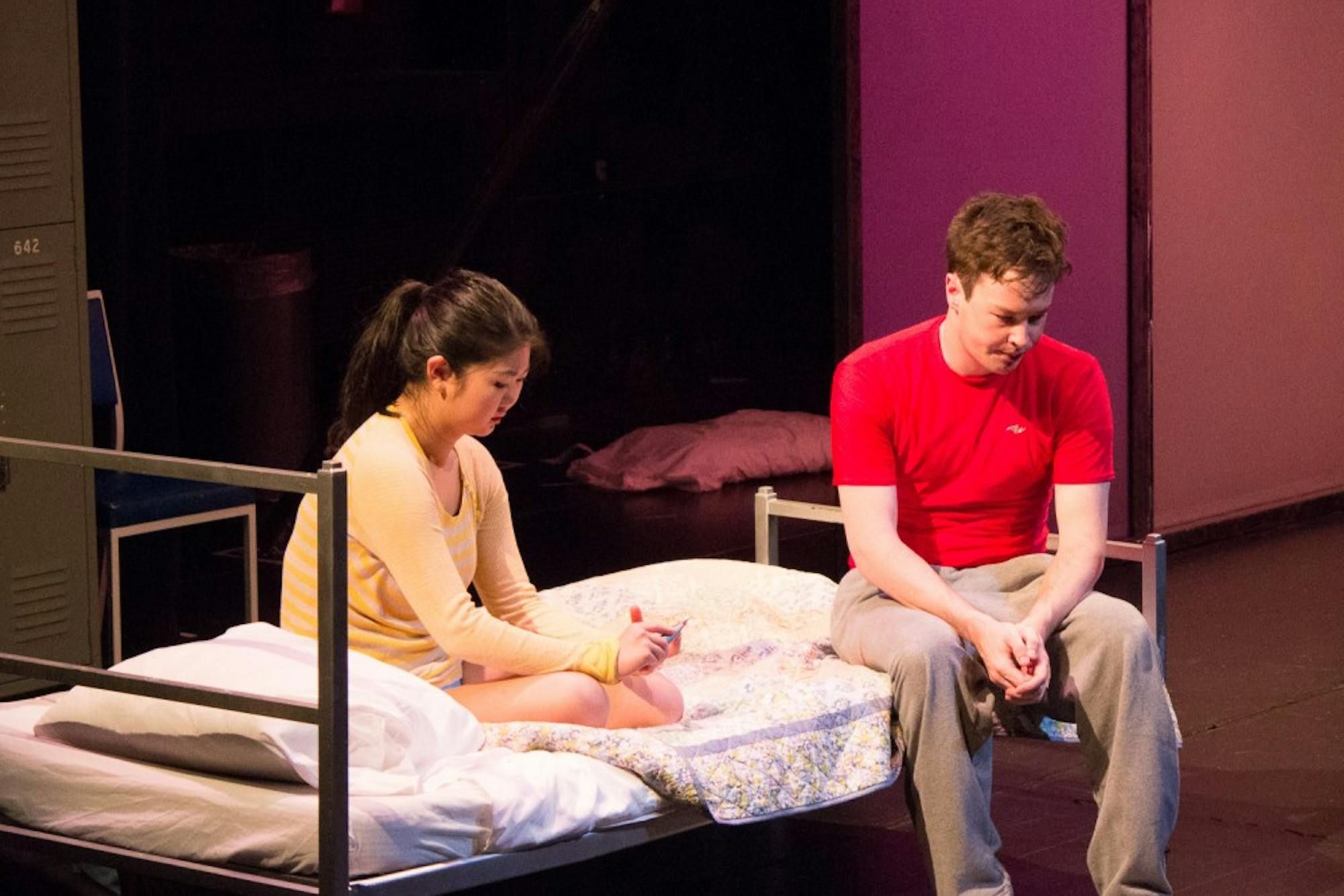Love blinds. Love wounds. Love keeps us going. The Dartmouth theater department’s production of Rajiv Joseph’s “Gruesome Playground Injuries,” directed by Nick O’Leary ’14, made these truths slowly, painfully evident this weekend in Moore Theater.
The play centers on two characters: Kayleen, played by Diane Chen ’14, who was also responsible for the show’s costume design, and Doug, played by Robert Leverett ’16. Over the course of a nonlinear 30-year span, the two never quite manage to come together.
O’Leary said that one of the aspects of the play that appealed to him was the playwright’s interest in complex relationships. Frequently, O’Leary said, movies and plays depict relationships in which two people meet, fall in love, perhaps fight with one another but then get back together in the end.
“[Joseph] is struggling with how relationships aren’t usually that simple,” O’Leary said. “There’s a lot of violence and trauma that comes out of relationships with people that we really care about.”
This connection, for better or worse, pulls the two characters together as they drift further and further apart in their dismal, atomic dance.
“He’s her lighthouse,” Chen said of Kayleen’s feelings for Doug. “But you can still get lost on the way to the lighthouse.”
The play brings audience members to hope against hope that the two will find each other, especially as they become increasingly worn and ruined while apart.
The two characters never stop seeking happiness, no matter how many times they miss or the pain of the fall. The characters repeatedly injure themselves psychologically and physically, Chen said.
O’Leary said he pushes his shows to be more physical.
“I really like plays and theater where people are moving around and using their bodies in ways that are more interesting than two people standing next to each other talking,” he said.
The injuries the characters sustain are, indeed, “gruesome.” Actors conveyed the wounds onstage by simple makeup application and costume changes while the audience watched. To portray Doug blowing his eye out with a firework, Leverett wrapped his head in a piece of gauze with red paint on it that suggested coagulating blood. In a scene in which Kayleen performs self-mutilation on her legs, Chen drew on her leg with red makeup.
True to the original script, audience members witnessed the two characters adopting grisly features, changing slowly and deliberately into older and younger versions of themselves. In this production, the transitions were backed by music by The Mountain Goats, who sang of loss, hope and frustration. Years passed and returned before the viewers’ eyes, which O’Leary said was his intent when he included songs by the band in the transition soundtrack.
Despite its darker moments, O’Leary said that there is more to the play than the trauma.
“There’s a tension between really intimate, affectionate moments in the play and then moments when they’re hurting each other,” he said.
The play shows where the characters went wrong and where they could turn back and go right. The structure jumps forward and back, suggesting points when they could have succeeded.
The play was relatable, O’Leary said, since “we all have relationships in our lives that are really messy and really difficult to navigate.”
“I’ve learned that you have to be a bit bolder in life,” Chen said when asked if how her character influenced her. She added that the lesson has led her to do things she otherwise might not have, like entering relationships and speaking hidden truths.
Georgi Klissurski ’14, who attended the show on Friday, said that the show demonstrated how “complete happiness is illusive.”
The show was performed from Friday through Sunday.




